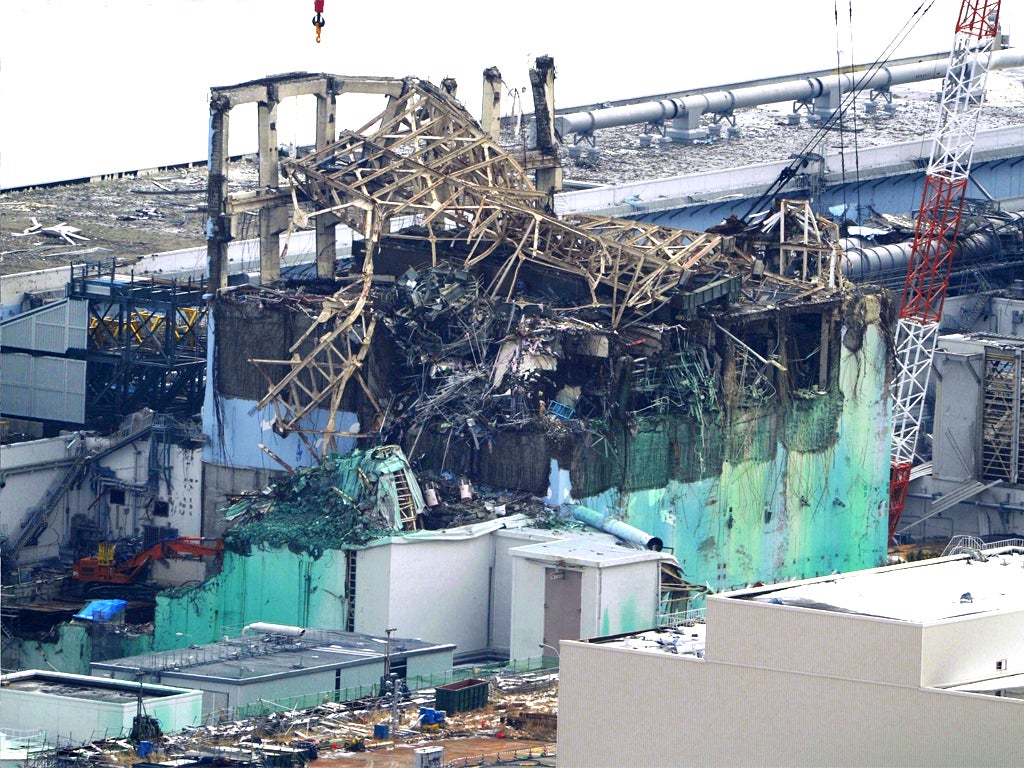With Fukushima nuclear plant still leaking, Japan clean-up bill soars to $50bn
Many are sceptical that government-led effort will make area habitable again

Japanese researchers say the cost of cleaning up from the Fukushima nuclear disaster could top $50bn (£32.6bn), more than four times the amount allocated by the government.
The figure does not include compensation for those affected by the explosion and the subsequent fallout, or the multibillion-dollar price tag for decommissioning the Fukushima Daiichi plant, which the government and regulators say will take at least 40 years to complete.
Three of the plant’s six reactors went into meltdown following an earthquake and tsunami that struck off Japan’s north-east coast on 11 March 2011. The meltdowns forced over 100,000 people to flee the contaminated zone around the plant, while tens of thousands more have since left the Fukushima area voluntarily. The tsunami is known to have killed more than 18,000 people, yet no one is officially listed as having died as a result of radiation released from the Fukushima Daiichi plant.
Workers at the plant said that they had spotted steam rising from one of the reactor buildings for the third time this week. Tokyo Electric Power Co (Tepco), the operator of the plant, said it had not been able to establish where it was coming from and was investigating the possibility that it was a rainwater leak.
On Monday, Tepco admitted for the first time that radiation is leaking into the Pacific, further complicating the clean-up operation and contradicting its earlier claims that contaminated groundwater had been contained before it had reached the ocean. The company faced severe criticism over the fact that it had sat on an internal report that revealed the groundwater leak for several days.
The head of Japan’s Nuclear Regulation Authority, which was established in the aftermath of the disaster, said earlier this month that he believed radioactive material had contaminating the sea close to the plant since the accident occurred
Japan’s government has allocated about $11bn (£7bn) to decontaminate the zone. Most of the money is being paid to contractors who are using power hoses and diggers to scour away dust and topsoil from the most contaminated areas, but experts from the National Institute of Advanced Industrial Science and Technology warn the total cost of decontaminating the evacuation zone will be about $20bn (£13bn), with another $30bn (£19.6bn) for areas further away.
Many are sceptical that the government-led clean-up effort will make the area habitable again, or that evacuees will move back. “It doesn’t matter what the government says, we’ll never go home. Most of us accept that,” says Yukiko Kameya, 68, who fled from Futaba town, next to the plant.
Tepco has yet to pay most refugees full compensation for the loss of their homes and other assets.
“The government should study the costs before deciding whether to complete decontamination or reallocate the money to help people rebuild their lives,” researcher Junko Nakanishi told state broadcaster NHK.
Tepco has received an estimated 3.5 trillion yen in public money since the disaster began. Last year, the government took majority control of the utility, allowing it to continue as a limited company with shares traded on the stock exchange.
Many observers believe the compensation process will drag on for years, adding to the final bill for the disaster. “The victims of this disaster often had large houses, rice fields, livestock and land and most had to move into small urban apartments or temporary housing,” says Yasushi Tadano, a Tokyo-based lawyer who is helping to sue Tepco. “The amount of compensation being offered is totally insufficient.”
Join our commenting forum
Join thought-provoking conversations, follow other Independent readers and see their replies
Comments